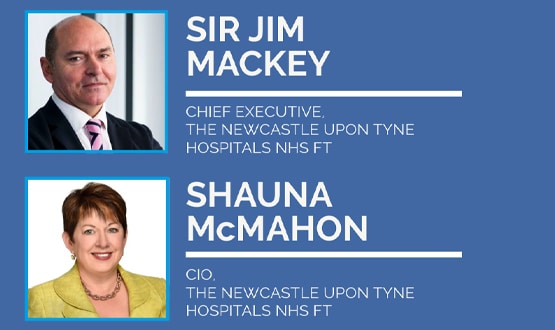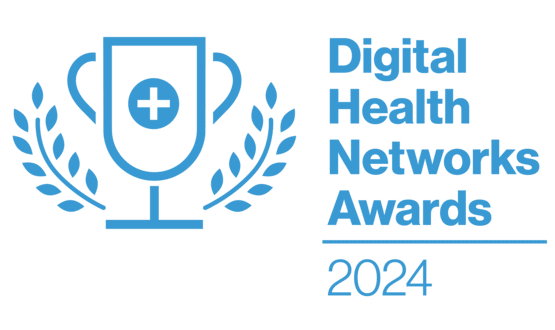End of term report for healthcare IT
- 12 December 2019

As 2019 draws to a close, Ade Byrne, CIO at Southampton University Hospital, looks back at the year in healthcare IT.
The year 2019 is nearly up and it’s a good time to reflect on how we are doing. Are we doing the right things, and are we doing them correctly? I guess this is my end of term report.
An environment for innovation
Will so called digital giants rule the world, in a set of virtual digital continents, and will big IT vendors in health drive everyone towards having one of two, or even one of one system within their domain? Sometimes the way we behave in procurement has the opposite effect to competition, creating conditions that allow monopolies to develop. This is nobody’s idea of a good thing, despite the commonly held belief that “if the NHS was [insert large business type] they would use the same system everywhere”.
“For every complex problem there is an answer that is clear, simple, and wrong”. How many times have you thought that recently?
Within this, a very common recurring theme is just how do start ups and SMEs get projects off the ground in the NHS. It’s really hard to break in to our market, and I don’t think we do much generally to make it easier. Procurements require reference-ability, at scale, and often a balance sheet that will dwarf any start up.
We need to be better at incubation for SMEs, and allow things to be proven at small scale whilst having an eye on the kind of architecture that will eventually deliver enterprise benefits. No organisation can have hundreds of pilots on the loose in their midst, but we should all have room for the odd small thing going on. Things that will help include open platforms that vendors can plug into, and creative space where industry can work alongside experts in their field. There are one or two of these, but we need to do more to get real growth in this area, in my opinion.
Interoperability
The research at Imperial that was widely reported in the past week was pointing at the fact that a high proportion of patients are seen without a full record available to the treating clinician. This is highlighted where care takes place in more than one organisation and information is not shared. The press articles written about this, that I have seen, were woefully wide of the mark, talking about the fact that as many as 21 different systems are used in a health provider (it can be many more), but that the answer was once again to move to one system.
Ironically, large monoliths might not be as good at interoperability at those that need to do it for a living. This may be changing, but systems that are built to do everything typically find it easier to just build more functionality than to message or share platforms. The real problem forms at the edge though, and in a world where patients move around between organisations we need systems where their information flows with them.
Despite the great work of InterOpen and the production of the Care Connect FHIR profiles and GP Connect, we are still in the “could do better” or even “must try harder” rating with interopeability. I say this because adoption has been slow, and it still feels like interoperability is an afterthought rather than baked in, as Bob Wachter said.
What we all know is that unless we can agree standards for both the holding of, and the exchange of, information, we will continue to struggle. Some fantastic work has been done on interfacing formats, but we are a long way off being able to export a patients current medication list from one system and import it into another in such a way that it can be continued, seamlessly, edited, and then passed back.
I suppose we could just do nothing and wait for digital giants to solve it? This would be a risky approach in my view. As we all know, data is now more valuable than oil, and this means that there is a risk of data lock in and potentially the NHS giving away intellectual property very cheaply.
Cloud
Does anyone remember cloud? Seriously, I know many of our services are now running in variants of private and public cloud. However, the drift to cloud first has hardly become a landslide. Forgive me but I’ve recently developed a phobia of landslides.
There are many reasons for the general apathy towards cloud in health and care IT systems. The obvious ones are the age of the products we use, due to lack of investment all round, and the fact we can generally be “good enough” without needing to move into high tier and expensive data centres.
Across Wiltshire and Hampshire (plus Isle of Wight) we run a successful imaging consortia (SWASH) that utilises cloud store so that images taken in, say Portsmouth, can be seen in real time right across the network. If you’re a patient on the Isle of Wight in the middle of the night, getting immediate access to specialist care for, say, a head injury, is testament to the kind of benefit that cloud architecture can bring.
I have been thinking about and working on a business case for digital pathology recently though, and cloud has come up in those discussions.
Back to the theme of monopolies, if one of the reasons for cloud is that you can test the market every now and then and move to your cheapest and best vendor using cloudsupermarket.com then I’m afraid this comes unstuck in these situations. I am thinking about how long it took to move data the last time we did it with PACS in around 2013. I think we were still migrating 18 months later. This is because in live systems you always need to retain copies for business continuity purposes, and migration in these circumstances is analogous to fixing the engines while the plane is in flight.
Imagine a situation where moving the data takes longer than the contract life, because that’s where we are heading. In other words this will be a data lock-in as big as any proprietary software lock-in you’ve ever seen, but for different reasons, i.e. it’s not so much about the format and structure of the data, but just down to the cost of exit and the time of transition.
This is something that we have not been thinking about at all, never mind enough. It’s like we are on the titanic, we know there are ice bergs, but the main imperative is to get to the destination on time.
Rest easy for now, because the latency on networks, and the lack of standards, means this largest of data isn’t going into the cloud any time soon for operational purposes. This however is something that I would recommend is given some thought. Why can the NHS not consider keeping control of its data so it does not, in fact, fall into these traps? This could be called “taking back control of NHS data”.
In summary
I’ve seen some great things this year. The launch of the Shuri Network at [CIO/CCIO/CNIO] Summer School was inspirational. I can see some great work coming down the line from the NHS Login within the NHS App, and the future NHS identity. I have seen some great advances within the exemplar programmes (GDE) and elsewhere in showcasing what the experience will be like when we have truly digital and mobile records.
However, as a glass half empty kind of guy, I’m thinking “more icebergs ahead” in the shape of licensing and moving the NHS onto the new office environment namely 365.
I just hope that come January the first, the head of NHS [insert random letter], played by Bill Murray, is not rolling over in his bed as the alarm goes off playing Sonny and Cher’s I Got You Babe. Did someone say purdah? This is one thing that I would agree, just needs to Get Done.




